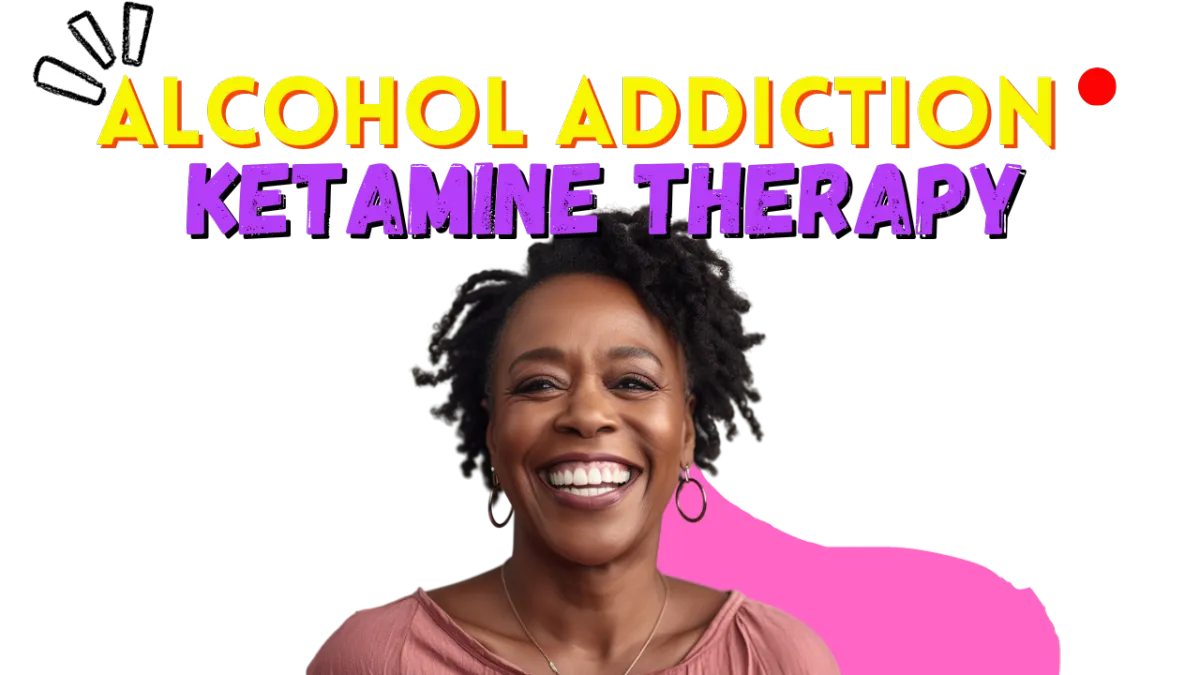

Alcohol Addiction and Ketamine Therapy: A Promising Approach to Recovery
"Breaking free from the chains of alcohol addiction is not just a choice; it's a courageous act of self-liberation, where strength and determination become your greatest allies on the path to a brighter, sober tomorrow."
Introduction
In a world where addiction rates are soaring, finding innovative and effective treatments for alcohol addiction has become paramount. Ketamine therapy, often associated with pain management and depression, is now emerging as a promising option for individuals battling alcohol addiction. This article explores the intersection of alcohol addiction and ketamine therapy, shedding light on its potential benefits, mechanisms, and considerations for those seeking a path to recovery.

Understanding Alcohol Addiction
The Vicious Cycle
Alcohol addiction, also known as alcohol use disorder (AUD), is a chronic disease characterized by an inability to control one's drinking despite adverse consequences. This cycle of addiction can wreak havoc on an individual's physical and mental health, relationships, and overall quality of life.
The Neurobiology
Alcohol addiction affects the brain's reward system, leading to cravings and compulsive alcohol-seeking behavior. Understanding the neurobiological underpinnings of addiction is crucial in finding effective treatments.
Traditional Treatments
1. Counseling and Therapy
Traditional treatments for alcohol addiction often involve counseling and therapy. These approaches address the psychological aspects of addiction, helping individuals develop coping strategies and identify triggers.
2. Medications
Medications like Antabuse and Naltrexone are commonly prescribed to reduce alcohol cravings and deter relapse. While these medications can be effective, they may not work for everyone.
The Role of Ketamine Therapy
1. Breaking the Cycle
Ketamine, traditionally used as an anesthetic, is gaining attention for its potential to break the cycle of addiction. It acts on glutamate receptors in the brain, which are involved in learning and memory. By disrupting the ingrained patterns associated with addiction, ketamine may offer a fresh start.
2. Managing Cravings
Ketamine therapy has shown promise in reducing cravings for alcohol. Patients report a decreased desire to drink, making it easier to maintain sobriety.
3. Addressing Underlying Issues
Many individuals with alcohol addiction have co-occurring mental health issues, such as depression and anxiety. Ketamine's antidepressant properties can address these underlying problems, contributing to long-term recovery.
The Ketamine Therapy Process
1. Evaluation
Before starting ketamine therapy, individuals undergo a comprehensive evaluation to assess their suitability for the treatment.
2. Administration
Ketamine is administered via intravenous (IV) infusion or intramuscular (IM) injection under medical supervision. The dosage and frequency are tailored to each patient's needs.
3. Monitoring
During and after the therapy sessions, patients are closely monitored to ensure their safety and track progress.
Is Ketamine Therapy Right for You?
1. Considerations
Ketamine therapy is not a one-size-fits-all solution. It's essential to consider factors like the severity of addiction, overall health, and previous treatment history when deciding if it's the right choice.
2. Consultation
Consulting with a qualified medical professional is crucial. They can provide personalized guidance and determine if ketamine therapy aligns with your goals.
Success Stories
1. John's Journey to Sobriety
John, a 42-year-old battling alcohol addiction for over a decade, found hope in ketamine therapy. He shared, "Ketamine helped me see life without the grip of alcohol. It gave me the strength to overcome my cravings and work on my mental health."
2. Sarah's Transformation
Sarah struggled with alcohol use disorder and depression. Ketamine therapy not only helped her achieve sobriety but also alleviated her depressive symptoms, allowing her to rebuild her life.
Conclusion
In the battle against alcohol addiction, innovative approaches like ketamine therapy offer new hope. While it's not a magic solution, it can be a valuable tool in the recovery process. However, the decision to pursue ketamine therapy should always be made in consultation with a healthcare professional.
FAQs
1. Is ketamine therapy a cure for alcohol addiction?
Ketamine therapy is not a cure, but it can be an effective part of a comprehensive treatment plan.
2. Are there any side effects of ketamine therapy?
Common side effects may include nausea, disorientation, and changes in perception. These effects are typically temporary.
3. How long does ketamine therapy take to show results?
Results can vary from person to person, but some individuals report a reduction in cravings after just a few sessions.
4. Can ketamine therapy be combined with other treatments?
Yes, ketamine therapy can complement traditional treatments and therapies.
5. Is ketamine therapy covered by insurance?
Insurance coverage for ketamine therapy may vary, so it's essential to check with your provider or healthcare professional.
https://www.lvketamineclinic.com/
In conclusion, ketamine therapy represents a beacon of hope for those grappling with alcohol addiction. It offers a unique approach that addresses the physiological and psychological aspects of addiction, paving the way for a brighter and sober future. If you or a loved one are considering this treatment, remember to consult with a healthcare professional to determine the best path to recovery.
Featured in

CURRENT AND PRIOR AFFILIATIONS













